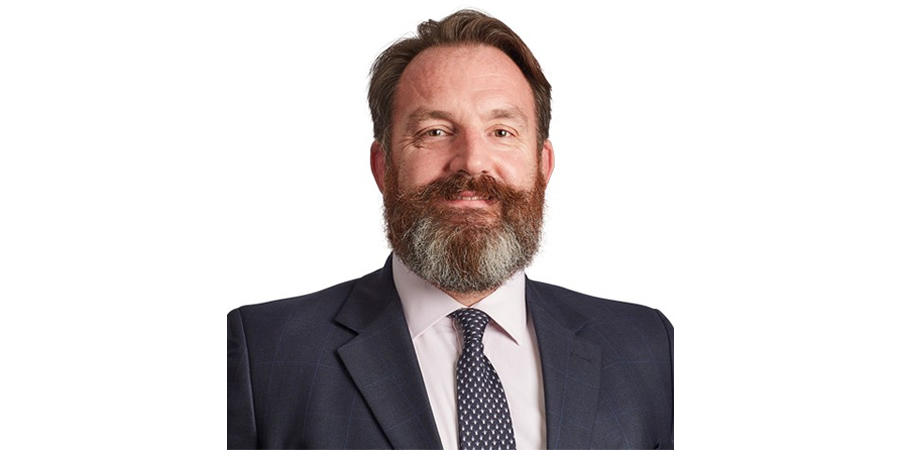HFW is a sector-focused law firm that specializes in subject matter expertise across shipping, aviation, energies, renewables, and insurance. As Global Director of IT, Mark Parr’s responsibility in the organization involves overseeing the technology as it stands in support of the delivery of legal services as well as being in the room for conversations with clients and making sure that technology is seen as a differentiator for HFW and provides smart technology solutions to support the clients. For that, Telecom Review spoke to Mark Parr, to explore the Enterprise networks infrastructure from the perspective of a global legal firm.
As a global law firm dealing in mission-critical projects for various industries across continents, what has been your strategy in ensuring that HFW networks remain free of outages and the connectivity is stable and reliable at all times?
Indeed, ensuring outage-free networks and stable and reliable connectivity are one of those big challenges. Previously, the way that we architected our network was based around our global footprint and the fact that our offices are situated in various locations geographically, but it's a step-change now. Certainly, for me, my main concern is to think about how to support our colleagues working anywhere. So, we're driving a project called ‘Work Anywhere, Protect Everywhere’ to provide the right or the same level of access to information and systems for our colleagues, regardless of where they're working.
Previously, the network was constructed very much around a hub and spoke model with six data centers, distributed geographically but we're now planning our migration to the cloud in a view that the topology will change. Plus, our architecture will change into a model that will provide access to people in different ways. We are going to see people operating, moving away from that conventional office environment into much more of a continuation of the hybrid deployment.
What are the networking challenges in managing workforces in a hybrid setting?
Firstly, there is a big challenge around security. We've gone from 19 offices to 1300 offices with people working in their homes. So, how do I ensure that you are secure and safe working at home, as you are working in the office? Also, how do I ensure the same level of access and connectivity at home, in the office or at an airport lounge or train station, or coffee shop? That is very much something we're considering right now. It's about making sure that we optimize the use of the Internet rather than relying on that fixed infrastructure that we might have seen before. It is also crucial to know how I can rely on technology advancements such as 5G, what does it mean to us, and how do I perceive it as a bearer that can provide connectivity. We have to make sure that we take away some of the stress and strains that we would have had. In my viewpoint, I’d be very much thinking about zero-trust network access and how does that meet the needs of our colleagues. One of the things I've been hugely mindful of is that people will be operating in different ways. So, making sure they feel secure and confident with their connectivity and also providing that equity of service is my key focus.
Please give us an idea about what might the future of Enterprise networks look like?
Certainly, from my perspective, what I'm planning is an expectation that people are going to be working in hybrid continuously. This is the new way of working and we won't see people returning to the office. So, the future of the network will be around zero-trust and making sure that people have that zero-trust network access type model in place. We are going to see much greater reliance on infrastructure such as 5G and the advancement of that in larger hubs and cities.
In addition, the consumption model has a bright future as well. Looking at network or infrastructure-as-a-service means greater reliance on the likes of Microsoft Azure and AWS and how those cloud providers can support me. I think there is a greater opportunity for me to move away from owning and leasing lines into leasing and owning services and drawing what I need from that to meet the needs of the firm.
Please tell us about HFW’s operation in the Middle East
HFW has identified the Middle East as an area of growth. Certainly, as a shipping and aviation law firm, the Middle East is a hub for both, but I also think we'll see greater growth around energy and renewables. Lots of work is being done in that part of the world around the future of energy sources. So, as a firm, we will continue to grow. We have opened offices across the region and will continue to develop them. We are committed to ensuring that we are seen as one of the major law firms in that area, playing a big part in achieving our global goal which is to continue to grow and become known as the subject-matter expert and build our client base. From my perspective around technologies, it's really exciting. The Middle East is an area where you see a lot of technological advancement and people adopting them. I want to make the most of that.
For us, it's about being able to show into which areas across governments or regimes the money and investment has been put into, how we can adopt those, make the most of them and leverage relationships. It's really exciting to see what technological advancements are being made and how we can adopt them as part of our plan. The key is to keep an eye on what's going on in the region and to understand our aspirations to grow and how we want to continue to grow in the area as a firm, while continuing to adopt that as part of our technology strategy.










